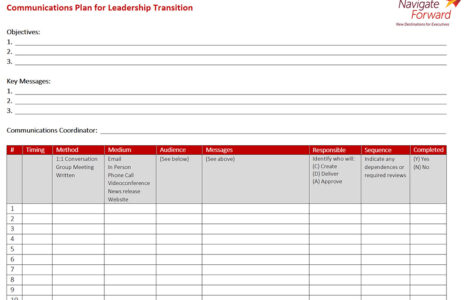Many senior leaders aspire to serve on a publicly- or privately-held corporate board. It’s a great way to leverage your expertise in a new way, grow professionally and make meaningful contributions to respected organizations.
But, moving from hands-on leadership to an oversight role means leveraging your skills and experience differently. We recommend reflection and preparation in these five key areas:
1. Commitment
Studies show that directors routinely invest 300 or more hours each year. It’s a significant investment that includes time for preparation, attending scheduled meetings, participating in committees—and tackling the unexpected. It’s important to have the right motivation, as well as sufficient time and a flexible schedule.
Ask yourself:
- Can you balance board service with your current schedule and priorities?
- What type of company will most value your contributions?
2. Perspective
Leading a business requires operational savvy and financial acumen. Serving on a board means stepping back from day-to-day management, and adding value through thought leadership and governance. This distinction is one of the biggest changes in a board role.
Ask yourself:
- How will your functional area of expertise bring value to a board?
- What strengths can you offer in an oversight and governance capacity?
3. Communication
Boards value candor and confidence—but they also expect a collegial environment. They appreciate team players who build relationships and collaborate more than they command. Making that shift can take practice if you’re accustomed to having the final say.
Ask yourself:
- How have you successfully shared a vision or motivated others in the past?
- Can you support, challenge and guide through questions and examples—rather than orders or direct action?
4. Value proposition
Board openings attract numerous, highly qualified candidates. Standing out requires more than a resume. Top prospects create specific market messages and a board bio. It’s essential to articulate your strengths, expertise and critical thinking more than results from previous roles.
Ask yourself:
- Are you emphasizing strategic activities and thought leadership, rather than operational achievements?
- Are you demonstrating your ability to lead business transformation, challenge conventional wisdom or resolve complex situations?
5. Connections
Cultivating a strong professional network creates a definite advantage. Most board opening are unadvertised, making referrals and word-of-mouth vital to your search. Your network should include C-suite executives, board members, executives on nominating committees and high-ranking individuals from a cross-section of industries.
Ask yourself:
- Do you have a strategy to build your professional network?
- Are you actively meeting with the right people, at the right levels, to identify board opportunities and enhance your candidacy?
Land a seat at the table. We can help! Our Board Readiness service helps seasoned executives understand the board landscape, evaluate your readiness and market yourself effectively. It’s a collaborative and customized process that positions you for success.



